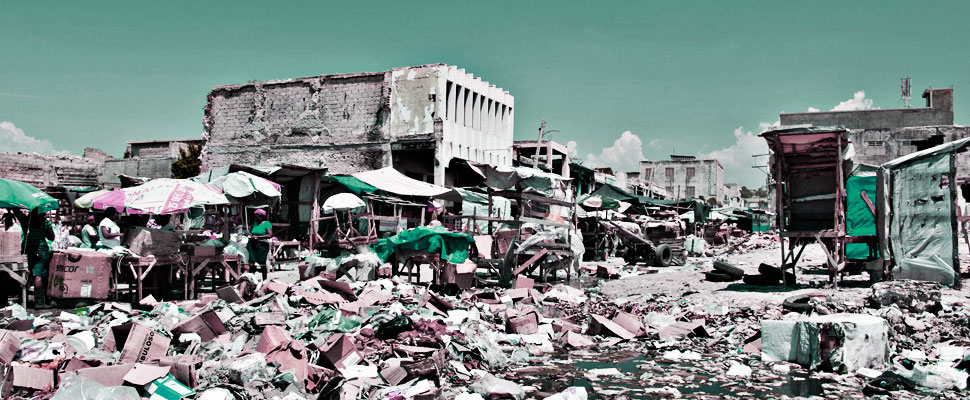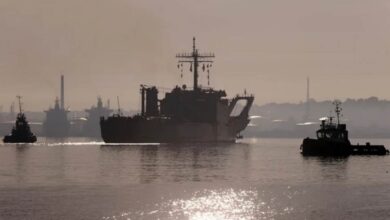Haiti, a forgotten nation: 9 years of the worst natural disaster
Listen this article
300 thousand dead left that earthquake of January 12, 2010. In LatinAmerican Post we review the current situation of the Caribbean nation

January 12, an unpleasant date for the small and poor Haiti, that a day like today, but 9 years ago, was devastated by an earthquake that produced 300 thousand dead and left one and a half million people homeless without any material goods. The worst thing is that, almost a decade after that natural disaster, Haiti continues to be immersed in misery. According to the Jesuit NGO, the poorest nation in Latin America.
Leer en español: Haití, una nación olvidada: 9 años del peor desastre natural
12 enero 2010 Terremoto masivo en Haití (Grado 7), en la comunidad de Léogâne, cerca de la capital Port-au-Prince (Puerto Príncipe) mueren entre 220,000 a 316,000 personas y más de 250,000 residencias y 30,000 edificios comerciales son destruidos. pic.twitter.com/1r3YXd91De
— Daniel Rucks (@RucksDelBo) 12 de enero de 2019
In this regard, Europress indicated that, during this time, the NGOs "Entre culturas" and "Fe y Alegría", undertook various initiatives to fight against poverty and guarantee access to education, protected in 17 educational centers or schools.
However, these organizations have also had to face another natural disaster, Hurricane 'Matthew', which devastated the southwest coast of the country, as well as some sectors of the Dominican Republic and Cuba, at the end of 2016. The hurricane came when they still did not recover from the ravages of the earthquake that occurred six years earlier. The balance on this occasion was one thousand dead, 2.1 million people injured and / or affected, including almost 900 thousand minors.
You may be interested in reading: Indonesia: a rare phenomenon that caused the tragedy
Education as a starting point
Un día como hoy, pero en 2010, un terremoto de 7 grados sacude #Haiti, provocando destrucción del 97% del país caribeño y dejó más de 315,000 muertos, 360,000 heridos y 1,500,000 damnificados.
Todo el mundo reaccionó con millones de toneladas de ayuda humanitaria. pic.twitter.com/r4Y81yjiOV— Giovanni} (@gio_gs96) 12 de enero de 2019
Ecclesia Magazine says that before the earthquake of 2010, the literacy rate in the Caribbean country was 62%, with three million children who were not incorporated into the education system, a system that, incidentally, had terrible infrastructures and a very basic professional teacher training.
Today, the numbers are not very different. For example, in the adolescent population over 15 years old, literacy is 57%. With regard to the children's sector, the number of children not included in the school platform dropped to half a million children.
Entreculturas and Fe y Alegría Haiti has 17 centers and 235 teachers distributed in the most vulnerable communities of the country and from there they benefit 5 thousand children and young people with free access to primary, secondary, and even technical education. Both organizations consider that education is the most effective means of overcoming both poverty and the effects of natural phenomena such as that earthquake and others like Matthew in 2016 and Irma in 2017.
Currently, only some international organizations work for Haiti and its citizens, as well as the Church, whose help is supported by missionaries and social projects that are led by the Jesuit priest, Miller Lamothé, director of the Spirituality Center of the Jesus company. Lamonthé said, in statements made by Vatican News, that "without faith in God, this situation can not be overcome".
Another hard blow and more forgetting
1. Un día como hoy hace 9 años #Haití vivió un terremoto que dejó más de 250 mil muertos, el 1 país en llegar con ayuda humanitaria fue #Venezuela lo recuerdo como si fuera ayer, yo iba en el avión, la gente deambulaba en las calles buscando a sus seres queridos pic.twitter.com/vCpCifriN1
— Madelein Garcia (@madeleintlSUR) 12 de enero de 2019
In October of 2018, an earthquake of magnitude 5.9 degrees shook Haiti again, although this time with less strident consequences: 14 dead and more than one hundred wounded. After collapsing several buildings, mainly in the town of Port de Paix, north of the nation and where specifically eight people died, according to the highest police authority, Jackson Hilaire. 24 hours later a new earthquake with magnitude 5.2 occurred, and in an epicenter very close to the previous one, in the northwest of the country.
Vatican News reiterates part of what happened with the 2010 earthquake and which had an epicenter 15 km away from Port-au-Prince, its capital. The first tremor occurred around 5 in the afternoon. According to the geological services, the earthquake was the strongest recorded since 1770 and as expected with devastating consequences.
The same media ensures that the level of poverty increased alarmingly. The best examples are a collapsed health system, a very backward citizen formation product of disorganization and many physical structures that were left in oblivion without even placing a single brick for reconstruction. There is no employment and much less economic resources to sustain itself.
LatinAmerican Post | Onofre Zambrano
Translated from "Haití, una nación olvidada: 9 años del peor desastre natural"




